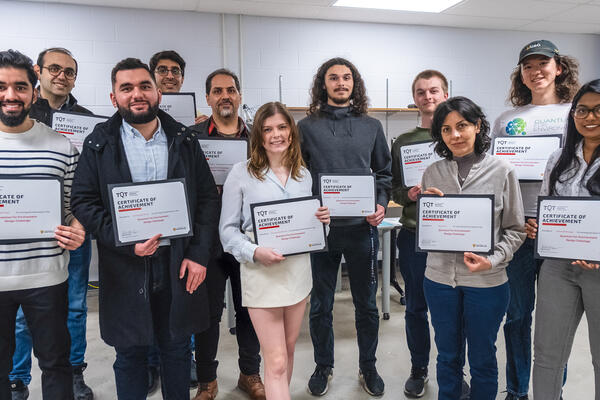
Expert Advisory – Facebook privacy issues
University of Waterloo experts comment on recent controversy surrounding Facebook’s use of data and the privacy of Facebook users

University of Waterloo experts comment on recent controversy surrounding Facebook’s use of data and the privacy of Facebook users
By Media RelationsIn light of the recent controversy surrounding Facebook’s use of data and the privacy of Facebook users, the University of Waterloo has experts available to comment on security and privacy challenges, business ethics, the future of information privacy and the internet, and how this may influence user decisions.
Aimée Morrison – English Language and Literature
Aimée Morrison is an associate professor in the Department of English Language and Literature, specializing in new media studies and social media.
“It has always been the case that Facebook’s value proposition is the user data it collects from everyone. What is new is the revelation of the degree to which this information can be packaged and mined by others, particularly in the political sphere, for the express purpose of using an individual’s set of personality, economic, cultural, professional, and geographic circumstances to craft what amounts to irresistible propaganda. This feels invasive, unfair, and in bad faith.”
- Aimée Morrison
Jennifer Whitson – Sociology and Legal Studies
Jennifer Whitson is a sociologist who studies technology and society — the way tech changes how we work, play and socialize with each other. She is an associate professor at the University of Waterloo and a board member on Waterloo’s Cybersecurity and Privacy Institute and an Associate Editor of the academic journal Surveillance & Society.
“The recent Facebook scandal is absolutely something privacy and surveillance scholars saw coming. But in the Cambridge Analytica case, the focus on whether users consented to sharing their data or not is a red herring. This is just the most recent in a long chain of events demonstrating how platforms like Facebook - without violating any terms of service at all - can manipulate what appears in our newsfeeds to influence voting behaviors, purchasing activities, and even our emotions.”
- Jennifer Whitson
Robert Kerton – Economics
Robert Kerton is the Principal Investigator for a six-university SSHRC grant in partnership with consumer groups and consumer protection agencies, and an expert in consumer economics, international consumer policy, microeconomics of regulation, and public policy.
“The economics of technology moved to make deception far more proficient. At the same time, the cost of collecting a vast number of personal details plummeted. Why? Because we collected and supplied them to Facebook for free. In addition, we provided details on a wide range of friends. Facebook tracks our likes and sells data that reveals strong and weak views we hold. Agencies are eager to exploit our personal views and pay big bucks for information they can use, or abuse, to condition our behavior.”
- Robert Kerton

Read more
First-year students hone more than their research skills by exploring what it means to be happy

Read more
12 Waterloo students and postdoctoral fellows receive up to $10,000 in funding to develop their green-tech solutions

Read more
The Future Cities Institute founded by CAIVAN will bring together leading minds from across sectors to solve the most challenging and urgent issues facing global cities.
The University of Waterloo acknowledges that much of our work takes place on the traditional territory of the Neutral, Anishinaabeg and Haudenosaunee peoples. Our main campus is situated on the Haldimand Tract, the land granted to the Six Nations that includes six miles on each side of the Grand River. Our active work toward reconciliation takes place across our campuses through research, learning, teaching, and community building, and is co-ordinated within the Office of Indigenous Relations.